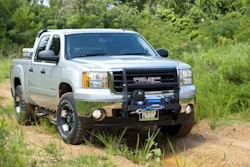 Extended Warranties
Extended Warranties
An inevitable part of owning vehicles is the cost of maintenance and repairs. There’s no way around it, so spending time evaluating cost-cutting measures is worth it.
One area to look at is vehicle repairs and the viability of “extended warranties.”
An extended warranty is a service contract that covers repairs and/or maintenance for a defined period of time or up to a certain mileage on a vehicle. It’s a form of insurance to cover potential large repairs in the future.
If you have a new vehicle that is covered by a manufacturer’s warranty, and you don’t plan to keep it beyond the factory new-vehicle warranty limits, then you probably aren’t interested in such coverage.
But if you are looking at keeping your pickup beyond the manufacturer’s warranty period, then an extended warranty may benefit you.
HISTORY AND HABITS
In deciding if you need an extended warranty, consider the reliability history of your particular vehicle. You can often predict some types of repairs will be needed by a certain age or mileage level and weigh the costs of such repairs to the cost of the additional service coverage.
Also look at the cost of parts for your vehicle.
Drivetrain repairs, for example, are much more expensive on a heavy-duty diesel than on a half-ton gas pickup, which can make an extended warranty more attractive to cover the diesel.
In addition, how many miles do you put on your truck annually? Most service contracts cover you up to a certain mileage, which could put you out of warranty quickly on a vehicle that is on the road for long distances.
So you definitely need to factor in annual mileage to figure out if you will get your money’s worth on the service contract.
Your company vehicles are likely a critical component of your business, which means an expensive repair will not be something you can put off.
Therefore, if cash flow is tight, you might be a good candidate for an extended warranty to cover those big, unexpected repair bills.
QUALITY COVERAGE
Make sure to check out the company you are buying the service contract from to protect your investment. If you go with the vehicle manufacturer’s plan, you will be dealing with a long-term company with a solid track record.
That’s not to say plans offered by third-party providers are all bad. You will find some great deals from independent providers, but you need to be careful and do your homework on these companies.
Check their history, reputation and ratings by Standard and Poor’s and the Better Business Bureau. There are a lot of fly-by-night companies out there; don’t get sucked in by one of them.
READ THE CONTRACT
 About the author: Robin Walton has been a licensed contractor for more than 20 years and has 16 years of financial accounting and systems experience. With a degree in accounting/ economics and hands-on construction experience, she understands the day-to-day business of contractors and landscapers.
About the author: Robin Walton has been a licensed contractor for more than 20 years and has 16 years of financial accounting and systems experience. With a degree in accounting/ economics and hands-on construction experience, she understands the day-to-day business of contractors and landscapers.
Another important item to consider is the terms of any service contract.
This is the time to read all of the details in the contract and ask a lot of questions, because certain terms can have a significant impact on the value you will receive from your service contract.
Here are some things to watch out for:
• Deductibles — Is the deductible per visit or per repair? A per-repair deductible can apply to each serviced part — so you can end up paying multiple deductibles when your truck is in the shop, which can add up quickly.
We recommend buying an extended warranty with a “per-visit” deductible or no deductible if you think you will be taking your vehicle in often. It’ll pay for itself in the long-run.
• Service location — What are the limitations on where you can get service performed? Are you limited to one location and are there any options if you are on the road or relocate?
You want to make sure that the terms aren’t so restrictive that you could end up with a useless contract if your situation (or the service provider’s situation) changes.
• Repair authorization — What is the process for getting your vehicle repair going? With your pickup being crucial to your business, you don’t want any delays getting the work approved and in process.
• Coverage — Review all items that are included and excluded in your contract. Some extended warranties have wear-and-tear coverage, which will cover parts that wear out.
It’s important to know if labor and parts are covered, since labor can be a significant portion of the repair cost. And find out if you are required to use reconditioned or used parts, rather than have new parts installed for all repairs.
• Payment — Will the repair bill be paid for directly by the warranty company, or will you be required to pay and request reimbursement? Preferably get a warranty where the payment is made directly.
But if the company uses a reimbursement process, do some research to find out how quickly the reimbursements are made and if there are any customer complaints about disputes or non-reimbursement issues.
In many cases, it makes sense to purchase an extended warranty to provide for unexpected, large repair and maintenance costs.
Evaluate if that is the case for your company, select a solid, reputable company to purchase from, and dig into the details of your service contract. You will come out ahead in the long-run if you do.







